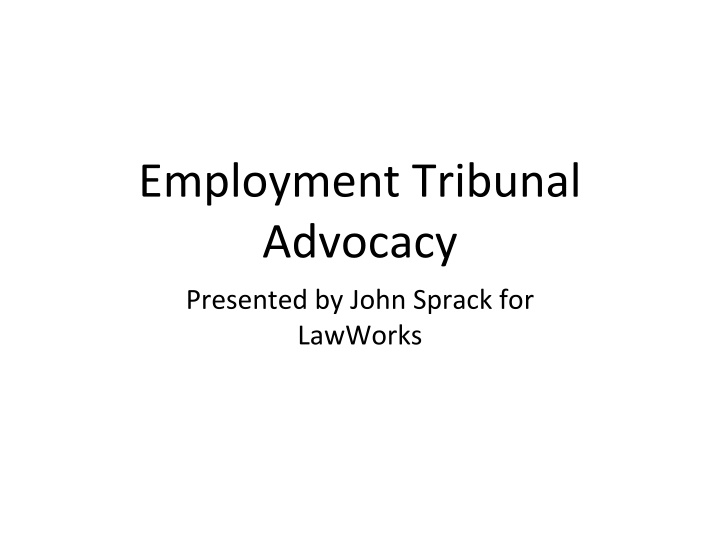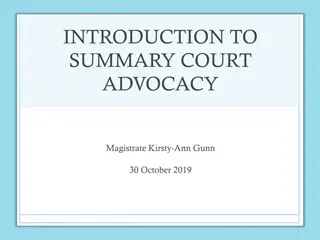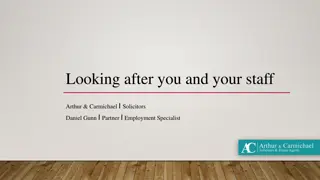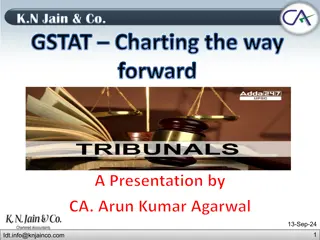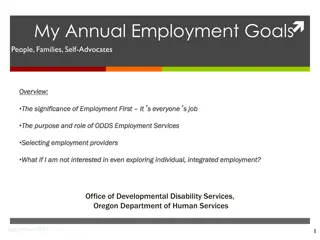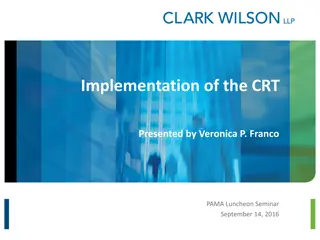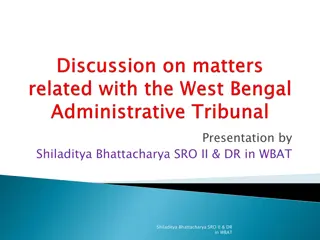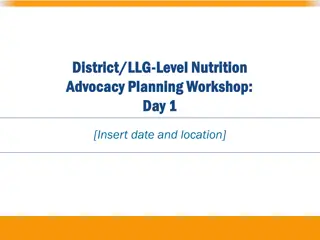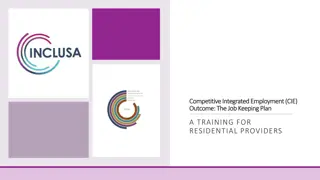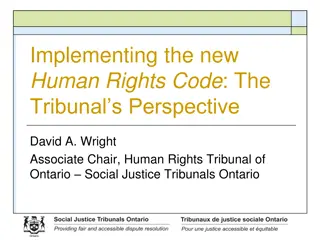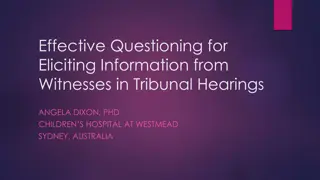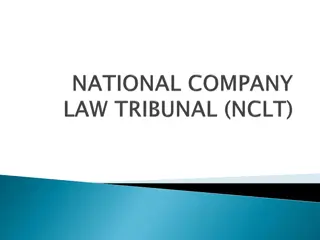Strategies for Effective Tribunal Advocacy in Employment Cases
Practical guidance on preparing for and presenting a case at an Employment Tribunal, covering disputed legal and factual issues, persuasion tactics, witness preparation, dealing with opposing witnesses, hearing procedures, and effective questioning techniques, all illustrated with images for better understanding.
Download Presentation

Please find below an Image/Link to download the presentation.
The content on the website is provided AS IS for your information and personal use only. It may not be sold, licensed, or shared on other websites without obtaining consent from the author.If you encounter any issues during the download, it is possible that the publisher has removed the file from their server.
You are allowed to download the files provided on this website for personal or commercial use, subject to the condition that they are used lawfully. All files are the property of their respective owners.
The content on the website is provided AS IS for your information and personal use only. It may not be sold, licensed, or shared on other websites without obtaining consent from the author.
E N D
Presentation Transcript
Employment Tribunal Advocacy Presented by John Sprack for LawWorks
Preliminary Points (1) What are the disputed legal issues in the case? What factual issues do they give rise to? What is your case in relation to those issues? What is your opponent s case?
Preliminary Points (2) Chronologies and their use The skeleton: when needed and its contents Core documents/essential reading Glossary Cast list Organogram List of important disputed/agreed facts
Considering your own case How will you persuade the Tribunal that your case in relation to the disputed issues is more likely to be true? What evidence will you put forward? Prepare (or consider) statements of your own witnesses When to prepare your draft closing submissions
Preparing for XX of opposing witnesses What kind of witness is this? helpful, damaging, neutral? If damaging, what is the reason? mistaken, prejudiced, lying? What elements of the witness evidence are implausible? And what about inconsistency?
The Hearing: general points Arrive early and make sure your witnesses do Make sure they read and check their statements Liaise with the clerk and hand over relevant papers Hearing will be less formal than a court in some respects Work out who begins The list of issues
Dealing with your own witnesses Impact of tribunal reading the statements in advance Familiarisation is OK; coaching is not! Preparing the witness for xx Supplementaries: why the Tribunal will not like them Applying to ask supplementaries
Leading What is a leading question? When you can and cannot lead - XIC and RX when in dispute How to avoid leading questions - what when why how where? Explain, describe, tell us etc
What to do during XX of your witness Taking a note of XX Whether to object When and how to object
The Process of Cross- examining (1) Do you need to XX? Keep it as short as you can but cover the necessary points Know how long you are going to be Don t be unnecessarily nasty Should you call the witness a liar?
The Process of Cross- examining (2) Use closed questions only Do a lot of leading Dealing with an evasive witness Dealing with an argumentative witness Putting your case Noting the answers
Tribunal Questions Irrelevant? You may think so but.... What to do if you think a question is improper How you should treat proper questions
Re-examination (RX) Do you need to RX? Judge the state the witness is in Remember no leading, no new matters Is there a relevant helpful document? Did the witness appear to be cut off when answering? Is context needed?
Closing Submissions (1) Who goes first? Using the issues as a structure Use of written submissions Foundation must be laid for any comment Keep it short What is the pivotal point? Make any necessary concessions
Closing Submissions (2) Deal with the ways in which the evidence assists your case Make submissions on credibility Make sure you deal with the weak points in your own case Never throw down the gauntlet to the Tribunal
Closing Submissions (3) Use of authorities Deal with questions and points raised during the hearing by the Tribunal Dealing with judicial interruptions Show the Tribunal the way home
Contact details My website is www.johnsprack.co.uk If you would like to receive my occasional newsletter on employment law fill in the sheet Make sure your email address is legible! No need to fill it in if you have already received it - I will continue to send to you
